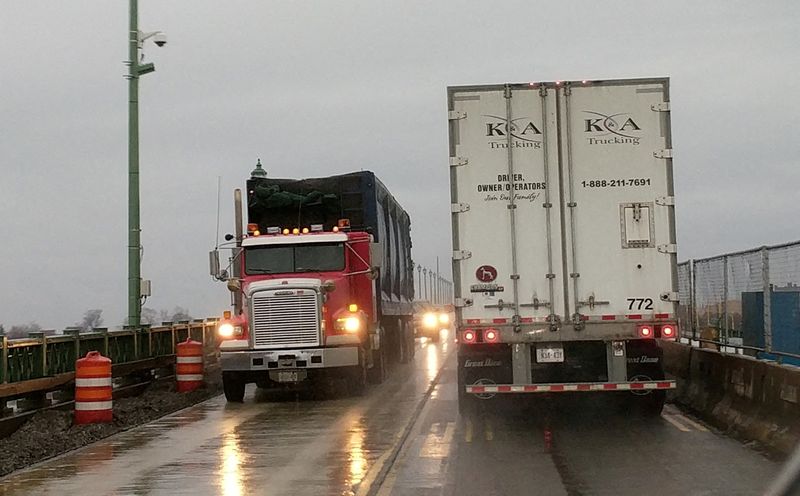By Steve Scherer
OTTAWA (Reuters) - The premier of Canada's Alberta province on Thursday called on the federal government to pause a COVID-19 vaccine mandate for cross-border truckers that companies say will disrupt the supply chain and fuel inflation.
The mandate, imposed by Ottawa to help curb the spread of the coronavirus, has cost Canadian trucking companies about 10% of their international drivers, six top executives said this week. They said they are hiking wages to lure new operators during the worst labor shortage they have experienced.
Alberta Premier Jason Kenney, at a news conference in Calgary, urged the government to extend an exemption that had been in place for truckers since the start of the pandemic.
Kenney made his request on the same day the United States confirmed its own vaccine border mandate for truckers would start on Saturday. Canada's has been in place since Jan. 15.
"Common sense tells us that we are at the peak of supply chain constraints across North America, around the world, huge inflation," Kenney said.
This is not the moment "to lose potentially thousands of truckers on our roads, bringing groceries up from the US and who knows maybe (COVID) rapid test kits as well," he said.
As many as 32,000, or 20%, of the 160,000 Canadian and American cross-border truck drivers may be taken off the roads by the mandate, the Canadian Trucking Alliance (CTA) estimates. The industry was short some 18,000 drivers even before the mandate, CTA said.
Prime Minister Justin Trudeau has resisted industry pressure to delay the mandate since it was first announced in November. On Wednesday Trudeau defended the mandate, saying Canada was "aligned" with the United States, its largest trading partner.
On Thursday, Canada's transport ministry said the measure was not negatively affecting the supply of goods, and cross-border truck traffic had not varied significantly.
Within the next two weeks, consumers will see "there's not as many choices on the shelves," said Dan Einwechter, chairman and chief executive officer of Challenger Motor Freight Inc in Cambridge, Ontario.
"Eventually the prices will be passed on from the sellers of those products, because we're passing on our increases to them," he said.
Canada's inflation rate hit a 30-year high of 4.8% in December and economists said the vaccine mandate may contribute to keeping prices higher for longer. In the United States, inflation surged 7% on a year-on-year basis in December, the largest rise in nearly four decades.
More than two-thirds of the C$650 billion ($521 billion) in goods traded annually between Canada and the United States travels on roads.
Rob Penner, president and CEO of Winnipeg, Manitoba-based Bison Transport, said from Jan. 1 it raised the base rate for cross-border drivers by almost 20% but failed to gain any.
"There's more freight than there is people right now."
Fresh foods are particularly sensitive to freight problems because they expire rapidly, though all imports from the United States could be affected, trucking managers said.

Canadian firms see labor shortages intensifying and wage pressures increasing, according to a Bank of Canada survey released on Monday. Investors increasingly expect the central bank to raise interest rates next week for the first time since 2018.
($1 = 1.2478 Canadian dollars)